Authentic, Responsible, Exclusive: An Eco-traveler's Guide to Egypt
2016
Feb 25th
At The Greater Cairo Library, Zamalek
Though Egypt is a destination well known for its antiquities, culture, desert, beach landscapes and other tourist attractions, it is not high on the map of ecotourist destinations, despite having a wealth of natural beauty. For the past few decades, the Egyptian coasts have witnessed rapid development through large tourist resorts which offer a seaside experience, often at the expense of the very marine and land habitats they seek to promote.
Ecolodges, on the contrary, function in symbiosis with the surrounding landscape; more than a relaxing stay, they provide an immersion into Egypt’s varied palette of sceneries and cultures. Many are located in remote areas that have kept traditions intact for centuries. From Siwa to Fayoum, Minya, Dakhla and Sinai, small, family-owned ecolodges are taking root, often without any help from outside.
While set criteria to define ecolodges in Egypt have not yet been clearly defined by the government, many entrepreneurs have nonetheless embarked on eco friendly, small-scale tourism practices across the country and set up lodges that use renewable energy sources, practice waste segregation and composting, grow their own organic food, use local material for the building of their lodge and vernacular architecture, all the while making the local community the backbone of their business.
But times are hard for these business owners, whose small enterprises are very vulnerable to the drop in tourism and the current volatile security situation.
The 29th edition of the Cairo Climate Talks tried to bridge the gap between these ecolodge owners, the government and the tour operators, as well as think of way to boost the ecolodges’ profiles during a panel held on Wednesday evening entitled “Authentic, Responsible, Exclusive: An Eco-traveler’s Guide to Egypt.”
H.E. Khaled Fahmy, Egypt’s Minister of Environmental Affairs, and H.E. Hansjörg Haber, Ambassador of the Federal Republic of Germany, opened the panel discussion that took place at the Greater Cairo Library in Zamalek.
“61% of German tourists see sustainability as a driving factor while choosing a hotel abroad,” said H.E. Haber in his opening remarks, stressing that environmentally friendly practices appeal to a growing number of foreign tourists who are increasingly aware of their carbon footprint. He also highlighted that Egypt is this year’s ITB’s Convention and Culture Partner, which is the world’s largest business platform for global touristic offers and will take place in Berlin March 4-8, which will allow Egypt to introduce its multi-faceted tourism offers, including ecotourism.
The Minister of Environmental Affairs, during his opening remarks, recognized that although 15% of the territory is declared as a protected area, the intervention in each of the 27 national parks has been uneven at best, given a lack of resources and the current budget deficit. In order to ensure that these protectorates are indeed protected, he presented his new vision. “For thirty years, we’ve had established the rule that there could not be any development in any of the declared national parks, but we now have realized that this approach needs to be modified,” he said. “Let me give you the example of our protected area in Matrouh: it covers 700 square meters, and the rangers onsite only have two 4x4s to patrol this huge area, which is obviously not enough.”
H.E. Fahmy’s new strategy for protectorates include the design of a master plan to delineate redlined areas, and identify in which areas eco-activities could be developed. “Once private investors develop eco-businesses in the protected areas, we won’t need an army of rangers since entrepreneurs will protect their interests,” he concluded.
Following the opening remarks, a short movie directed by Lindsey Parietti from the Cairo Climate Talks was screened to the public, which took the audience on an eco-friendly journey from Siwa to Fayoum, and from Dakhla to Marsa Alam. Through captivating visuals of Egypt’s stunning desert and wetland landscapes, and long interviews with ecolodge owners, this film highlighted the passion that drive these entrepreneurs, and the difficulties they have faced over the years to make profit.
Hani Zaki, the owner of the ecolodge Zwara located in Fayoum featured in the film, sat on the panel. “Zwara is my baby,” he says. “I wanted to have a place where I and other people could find peace and serenity,” he explains. After years of roaming the Egyptian coasts and deserts, he came to the conclusion that “Egypt deserves better, it’s a large protected area in North African and the natural resources we have are incredible.”
Zaki has experienced many difficulties from the onset. The local community interpreted his desire to use local building materials such as mud, dried grass and stone as a sign of poverty, especially that 10 years ago there were no tourism activities in Fayoum. “I gave my staff training courses to teach them how to deal with local tourists and foreigners, how to drive a four-wheeler in the desert, and how to cook, since in Fayoum the cooking is culturally done by women.” For his water supply, Zaki connected his lodge to the water station in Wadi Rayan, but his lodge is off the electricity grid. “I don’t use generators or solar panels, which are too expensive for me, but I have solar lamps and candles to provide light at night,” he explained.
Emad Hassan is the Energy Advisor to the Minister of Tourism. A few months ago, the Egyptian Ministry of Tourism pledged LE1 billion to the Green Tourism Unit to facilitate the adoption of solar panels, solar water heaters and LED lamps for hotels across Egypt. The idea is to support the partial or total replacement of diesel power generation with renewable sources of energy, and the Green Unit is currently implementing a pilot project in Marsa Alam. “We are allocating LE20 million to this pilot project, says Hassan, and we chose this location because it is still well preserved and off-grid, which means that hotel owners have to deal with rising fuel prices and an erratic supply.” The government, in this framework, engages itself to pay the difference between the cost of energy produced by conventional and renewable sources to ease the transition towards solar.
Since there are no definitive criteria to define what an ecolodge is and which best practices should be implemented, GIZ financed two new manuals, one for ecolodge owners and one for tourists who wish to have a lighter footprint in their travels. Cornelia Redeker, an associate professor of architecture at GUC and the author of the Featherlight guide for ecolodge owners said: “We focused on small ecolodges which have a maximum of 20 to 25 units, because we felt that this segment had not been paid attention to.” From guidelines on renewable energy, solid waste management and local community engagement, this guide encompasses best practices for ecolodge owners and gives them tips. “Since the certification system does not target smaller lodges, we need to think of how to create a label of excellence,” she said.
Peter Wirth set up a small hotel in Bahareya oasis 20 years ago. According to him, the younger generations of Egyptians are much more interested than their parents in traveling to the desert and discovering their country. “But we need to make sure that the local community and the National Park rangers know what they can get out of the protected areas, it needs to be a clearer source of income for them,” he said.
Meet our Panelists
H.E. Khaled Fahmy
Egypt's Minister of Environmental Affairs
H.E. Hansjörg Haber
Ambassador of the Federal Republic of Germany
Hani Zaki
Owner of the ecolodge Zwara
Emad Hassan
Energy Advisor to the Minister of Tourism
Cornelia Redeker
Associate professor of architecture at GUC and the author of the Featherlight guide for ecolodge
Meet our Moderators
Mr. Ahmed Sedky
expert on sustainable and renewable energy systems and solutions
Venue / location
At The Greater Cairo Library, Zamalek
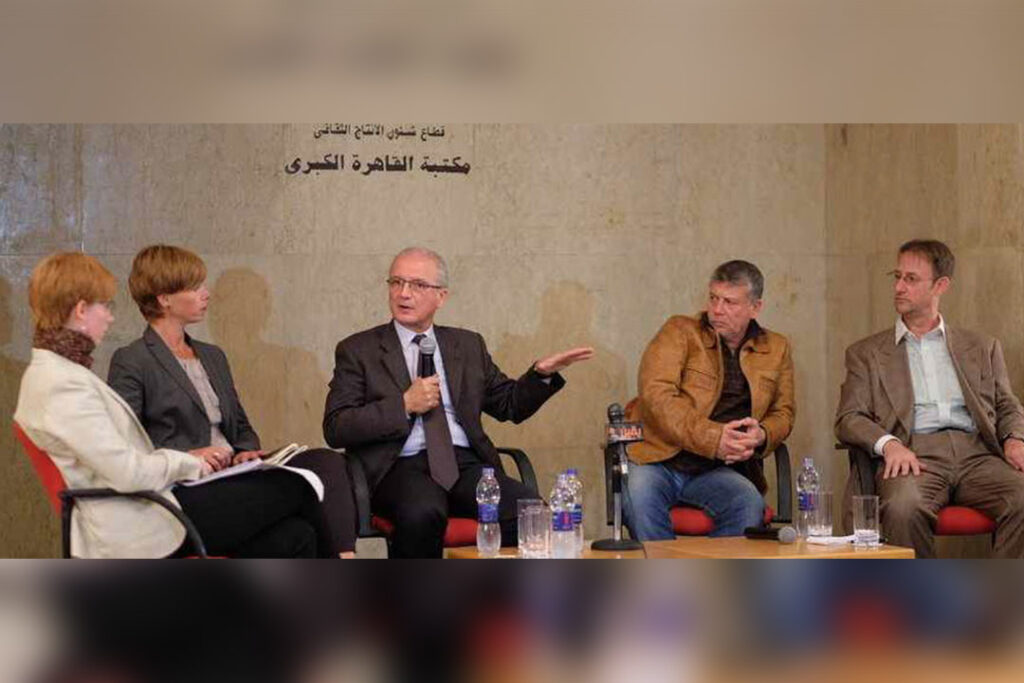
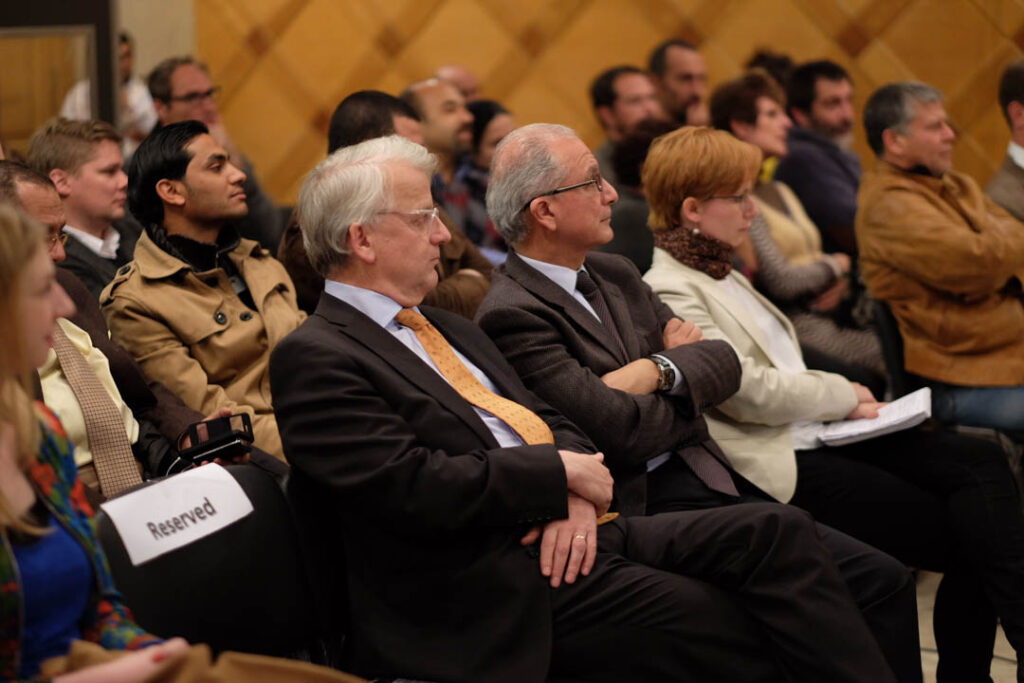
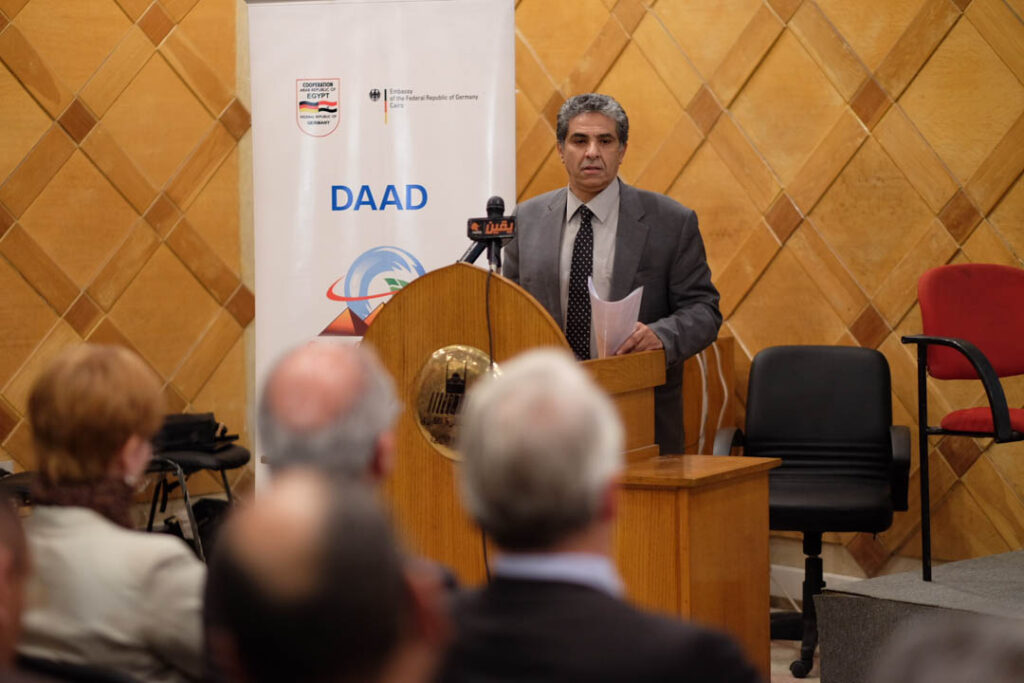
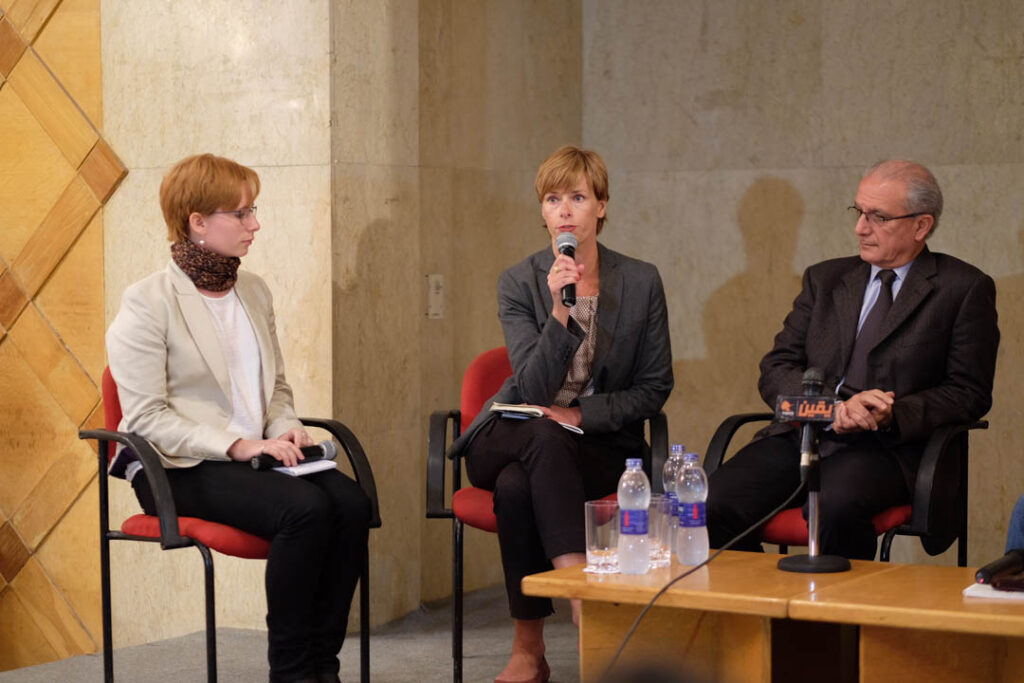
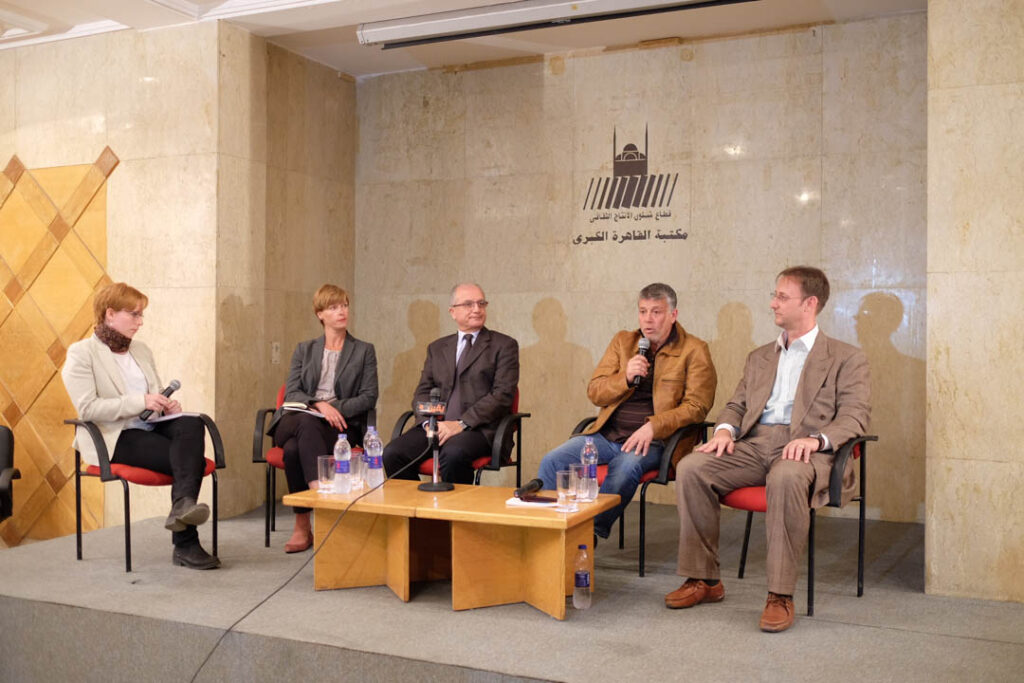
Are you interested? Don’t miss out by registering to our events. We hope to see you there.
